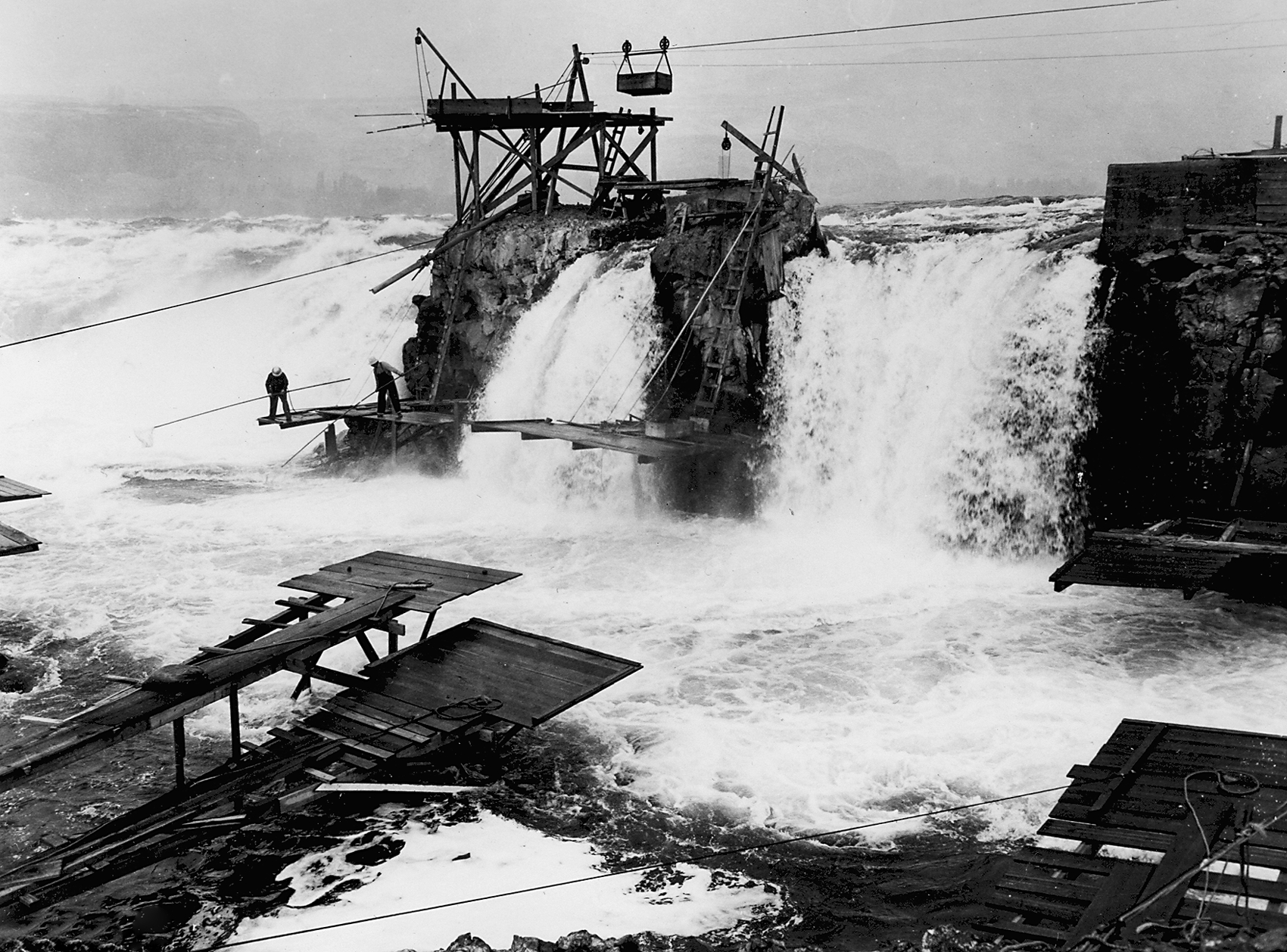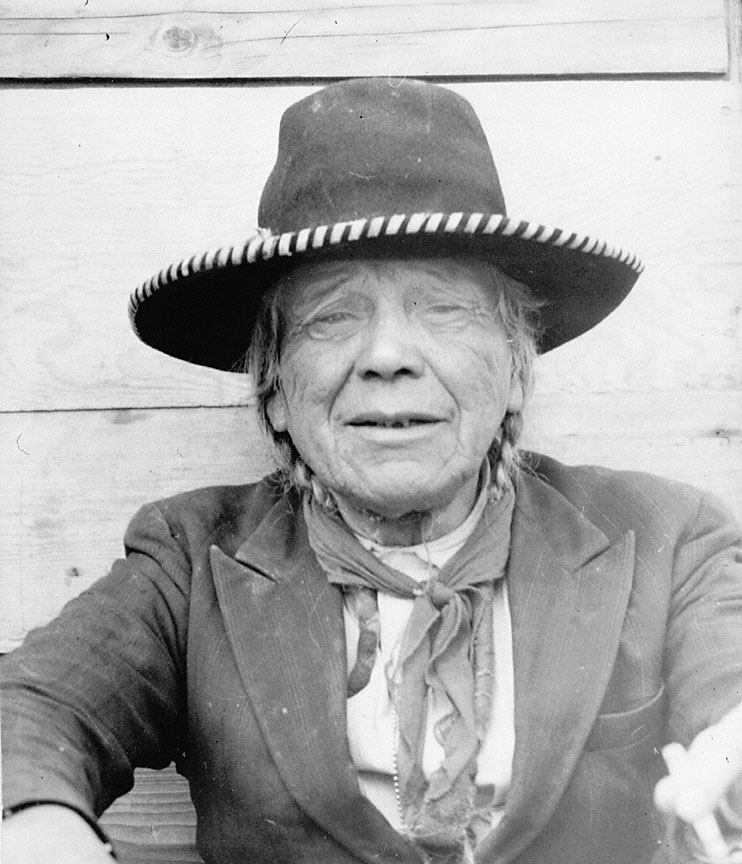Author, historian, teacher, Martha McKeown, a third-generation Oregonian and descendant of covered wagon pioneers, was born in Astoria in 1903. In 1911, her family moved to the Hood River Valley, where she lived most of her life near the Native Americans about whose lives she was later to write her books. Her first books, however, tell of the travels of her Uncle, Mont Hawthorne, from the Atlantic to the Pacific and of his trips to Alaska every summer from 1899 to 1906 to help build the salmon canneries in the Far North. As a child in Astoria, she delighted in listening to the stories of "just an oldtimer who remembers good," told to her each time her uncle returned from Alaska. In these collections of his stories, she often employed his colorful (and sometimes profane) language, and the stories are vivid and lusty, filled with spice and humor. The Trail Led North:Mont Hawthorne's Story (1948), Them Was the Days (1950), and Alaska Silver: Another Mont Hawthorne Story (1951), are stories of the American West in its adolescence, full of adventure, human interest, and authentic history.
McKeown graduated with a B.A. from Willamette University in 1923, attended the University of Washington, and received her M.A. in English in 1937 from the University of Oregon. She began teaching school in Mosier in 1923, and continued teaching for forty-five years. In 1924, she married Archie W. McKeown of Gresham and they became partners in a family fruit-growing business in the Odell district of the Hood River Valley; they were also part owners of a hardware store which had been in the family more than fifty years. Uncle Mont lived on an adjoining farm.
For many years, she was friends with the Wy-am Indians of Celilo Falls, as was her father before her. They invited her into their homes and to their feasts and rituals. McKeown is the only white woman who was taken into their tribe. Chief Tommy Thompson sometimes visited her and stayed in her home in Odell, even once when he was in his nineties. Because of McKeown's intimate connection to the tribe, her husband was allowed to join her in her visits and was able to photograph the village life, photos which became the substance of the book, Linda's Indian Home, accompanied by Martha's narrative.
The way of life for the river Indians, who made their living by dipnetting the salmon migrating upriver to their spawning grounds, came to an end with the building of The Dalles Dam. The fishing village and the falls were inundated forever in 1957. Linda's Indian Home tells of the day-to-day lives of the Wy-ams.
McKeown lived most of her later years on the family orchard in Hood River Valley, teaching at Wy'east High School until her retirement. Her husband, Archie, died in 1957. In 1960, she remarried and moved to Portland, staying in contact with the Wy'ams until illness forced a move to a convalescent center where she died in August, 1974.
-
![]()
Martha Ferguson McKeown, Chief Tommy Thompson, and Flora Cushinway Thompson, 1956.
Oregon Historical Society Research Library, Org. Lot 1284 -
![]()
Martha Ferguson McKeown (right), June 1940..
Oreg. Hist. Soc. Research Lib., bb003835
-
![Multnomah County Library event celebrating the release of McKeown's release of her book "Linda's Indian Home."]()
Chief Tommy Thompson, Martha Ferguson McKeown, Linda Meanus, Catherine Cushinway, and Ida Thompson, 1956.
Multnomah County Library event celebrating the release of McKeown's release of her book "Linda's Indian Home."
Related Entries
-
Celilo Falls
Celilo Falls (also known as Horseshoe Falls) was located on the mid-Col…
-
![Mosier]()
Mosier
Located in the Columbia River Gorge between Hood River and The Dalles, …
-
![The Dalles Dam]()
The Dalles Dam
The United States Army Corps of Engineers constructed The Dalles Dam be…
-
![Tommy Thompson (1864?–1959)]()
Tommy Thompson (1864?–1959)
Tommy Kuni Thompson served as the headman of Wyam (an Ichiskiin Sinwit …
Map This on the Oregon History WayFinder
The Oregon History Wayfinder is an interactive map that identifies significant places, people, and events in Oregon history.
Further Reading
Barber, Katrine. Death of Celilo Falls. Seattle: University of Washington Press, 2005.
History of Hood River County, 1852-1982, Hood River County Historical Society, 1982.
McKeown, Marth Ferguson. Them Was the Days. New York: Macmillan Co., 1950.
McKeown, Martha Ferguson. Alaska Silver, New York: Macmillan Co., 1951.
McKeown, Martha Ferguson. Come to Our Salmon Feast, Portland: Binfords and Mort, 1959.
McKeown, Martha Ferguson. Linda's Indian Home, Portland: Binfords and Mort, 1956.
McKeown-Ellis, Davinne. "McKeown takes up quest for Wy'am rights." The Dalles Chronicle. March 11, 2007.










